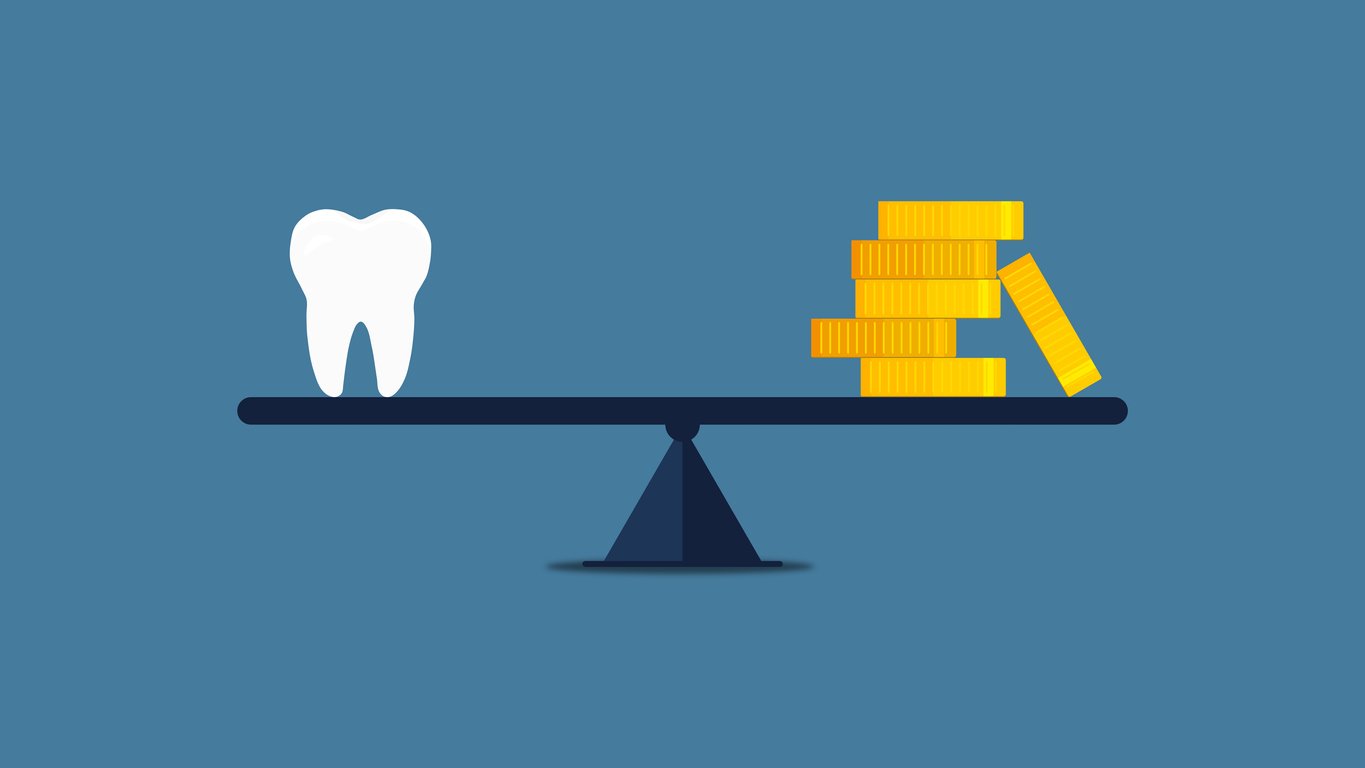May 2019--Compensation for dental hygienists is still a heated topic in dental groups and practices. The dental hygiene landscape has changed dramatically over the last decade, with most locations witnessing many hygiene applicants and limited dental hygiene employment available.
Not only that, but dental companies are constantly plagued by declining insurance reimbursement while continuing to pay their employees at the same levels they were five years ago.
So, how can you strike the appropriate balance between wages and expenses while keeping your employees happy?
The following are the most prevalent issues that dental organizations face:
- They are paying more than they generate.
- In hygiene, there is no actual profit margin.
- Having difficulty obtaining 'dental hygiene compensation entitlement'.
- There is no link between hygienic pay and performance.
- Hygiene pay has climbed while the industry pay standard has declined.
- Insurance reimbursement is down, whereas hygiene salaries are up.
The hygiene compensation model you choose affects the attitudes of your dental hygienists and their effectiveness in meeting hygiene benchmarks. That begs the question: how to implement effective hygiene compensation models for dental practices?
Founder of Inspired Hygiene and Hygiene Consultant Rachel Wall, RDH, joined us to discuss dental hygienist pay arrangements.
Table Of Contents
- How Do Dental Hygienists Get Paid? Commission Rates + Bonus
- Dental Hygienist Pay Arrangements: Questions To Ask And Considerations
How Do Dental Hygienists Get Paid? Commission Rates + Bonus
 The dental hygiene profession is frequently adaptable. They may be able to work at different practices and alter their hours. Their compensation may be flexible depending on where they work, so it's crucial to understand how each operates.
The dental hygiene profession is frequently adaptable. They may be able to work at different practices and alter their hours. Their compensation may be flexible depending on where they work, so it's crucial to understand how each operates.
Here are the four types of dental hygienist pay agreements and the benefits and drawbacks of each.
Daily or Hourly Rate
Many practices employ the daily or hourly rate since it is easy to calculate. You get paid the same amount regardless of your particular output.
However, suppose your calendar is riddled with gaps.
In that case, dentists may grow dissatisfied when they calculate the expenditures of paying a dental hygienist who is not seeing enough patients.
Combined Hourly Wage with Commission
Federal law requires nonexempt employees, including hygienists, to be paid at least minimum wage for hours worked.
Hours worked include all the time an employee is required to be on duty, even if it is making phone calls to schedule hygiene patients or sharing in housekeeping duties of the dental practice.
An hourly or salaried rate complies with Federal law and provides stability and income security. It gives them the flexibility to maximize their earnings.
Striking the right balance by combining an hourly wage with commission could make your dental organization more attractive to hygienists.
The dental practice sets a daily revenue goal in the combined base rate and commission compensation model and agrees on a minimum salary. Any hygiene production over that goal is paid on an agreed commission schedule.
Dental Economics and RDH Magazine report on trends in hygiene compensation from survey data. The commission amount is generally 25% to 30% above the production goal.
For example, if the daily goal is $1,000 and the hygienist produces $1,100, the excess is $100, and 30% of $100 is $30.
For that day, the hygienist’s compensation would be the base plus $30. Some hygienists find that receiving some of their income as commission gives them the incentive to extend their day and see more patients.
The commission is an excellent motivation to work harder. It motivates some dental hygienists, but not all. There is a base wage since dental hygienists cannot avoid the occasional slow day caused by unforeseen cancellations.
Straight Commission
A dental hygienist's salary that is solely based on commission can place a strain on business assistants. If your calendar isn't filled, you're not happy as a dental hygienist, and you may blame the business assistant for your slow work days.
Commission-based remuneration can cause disputes and unpleasant competition among dental hygienists. You may be tempted to trade quality for quantity to keep production moving.
Suppose you ever have a taste of a large production cheque. In that case, you may become discouraged if you cannot maintain the same high output level for every pay period.
You are also responsible for completing additional tasks for which you may not be compensated, such as sanitation, laundry, calling patients, and aiding coworkers.
Per Patient Compensation
Although "pay per patient" is not often used, the underlying assumption is that dental hygienists are paid a specific amount for each patient seen. The per-patient amount is derived using a three-month average to establish the base amount.
It is straightforward but may not encourage you to go beyond the essentials. The amount remains constant regardless of the procedures used.
“In working with dental practices all over the nation, I’ve seen many different models of compensation for dental hygienists.”
Critics of the 100 percent commission model have concerns that:
- Hygienists will be more concerned about the volume of patients than the quality of their care. Spending less time with patients lowers their ability to lead hygiene patients forward into the higher-value restorative care they need.
- Low volume periods may mean going days without sufficient income.
The Pooled Commission Model
One type of commission is “pooled commission.” In this type, the commission on the total hygiene production of all the hygienists in the organization is equal.
One practice that Inspired Hygiene worked with a few years back in Texas had a large Hygiene department with six hygienists. All Hygiene production went into one big pool, and the hygienists made the same certain percentage of that.
For example, 30 percent of Hygiene production was divided among all the hygienists. This model created a lot of teamwork.
When they hired a new hygienist, the others would naturally try to nurture this person. Still, the new hygienist had to prove herself before entering the pool. So, the new hygienist was paid separately until she could produce and contribute. It worked well for that practice.
Dental Hygienist Pay Arrangements: Questions To Ask And Considerations
 Once you've established a compensation strategy, you'll need to work through the specifics of adopting the new hygiene compensation structure.
Once you've established a compensation strategy, you'll need to work through the specifics of adopting the new hygiene compensation structure.
Here are some questions to consider as you complete your hygiene compensation plan parameters.
- Will the hygienist be compensated for PTO, holidays, and other responsibilities?
- Should we pay based on Collection, Adjusted Gross Revenue, or Gross Revenue?
- Will the base rate and percentage be the same for everyone?
- What happens when the hygiene crew goes to a Continuing Education or team meeting?
- What procedures am I credited for?
- Will we award credit for things sold outside of the practice?
- "For new patients, we provide a complimentary exam and X-rays." What effect will this have on the hygiene team?"
- "Our doctors frequently provide discounted care to family and friends." What effect will this have on the hygiene team?"
- Will there be a pay raise?
- What if they work extra hours?
Make the plan that will lead you to your profit target. Make no incremental or temporary plans to bring your hygiene team where they need to go.
Create the "correct" plan from the beginning. It is critical to remember that no matter what plan you implement, your hygiene crew will most likely be angry with the change. You don't want to change the percentage or the plan after a few months or even a year of execution.
Maintain consistency with your team. Make no particular arrangements with any team member. You must establish a compensation plan appropriate for all team members, regardless of tenure.
Assist your hygiene team in understanding how they can succeed on the plan by following the protocols and systems that your group has set.
Before adopting a performance-based pay plan, your hygiene staff should track their stats, so they know how much money they make each day. This will assist them in better understanding the new pay plan you are proposing.
Before and during the implementation phase, mentor and support the dental hygiene team. Changes in compensation are complex for everyone. The amount of assistance you provide will help smooth the transition while also assisting the hygiene team in attaining their financial goals.
Final Thoughts
Implementing a new hygiene pay system is a difficult task that will require the full attention of your management team to ensure a smooth transition.
Because the dental hygiene team is an essential component of your dental team, make sure you have empathy, support, and follow-up during this process. You want this adjustment to benefit your patients, hygienists, and the group as a whole.
Taking care of your practice's finances is extremely important. Patient Prism can help you book more new patients with the help of artificial intelligence. Would you like to increase new patient revenue?

Subscribe to our blog for the latest updates
By submitting this form you will be receiving our latest updates on post. We're committed to your privacy. Patient Prism uses the information you provide to us to contact you about our relevant content, products, and services. You may unsubscribe from these communications at any time.
- Recent
- Popular










.svg) Share
Share.svg) Tweet
Tweet.svg) Post
Post.svg) Mail
Mail


